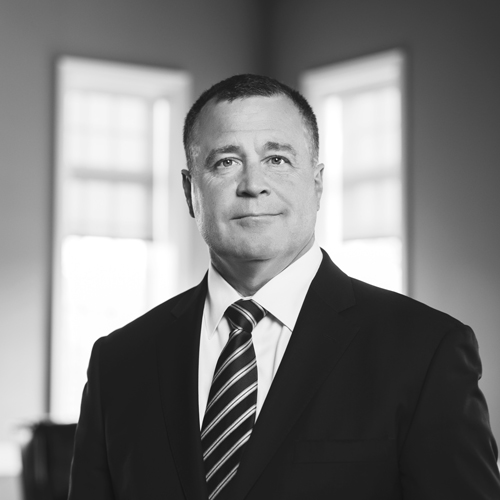As deputy general counsel for investment giant Janus Capital Group, Michelle Rosenberg could be regarded as someone in the legal department with all the solutions. However, she prefers to take a different approach.
“I try hard not to answer my staff’s questions,” Rosenberg says. “Instead, I ask, ‘What’s your proposal?’ I help guide the process so they can be more self-sufficient and feel more accomplished. I don’t want to just give them the answer and keep them in their box. I think that happens a lot elsewhere.”
In making such efforts to keep her team growing as attorneys, she believes they have more to offer than the typical finance industry legal department. The words “it depends” tend to start many in-house lawyer’s sentences, but to Rosenberg, they seldom reflect an awareness of an organization’s end goal and how to reach it. For internal and external clients alike, she feels the legal team’s culture must be solution-based as the rule, not the exception.
“We try to speak English and not use a lot of legal jargon. The idea is to get to the point as quickly as we can with a path forward—not just a yes or no response.”
Traditional routes have never been Rosenberg’s style. In fact, it was her work at a large bank rather than a law firm that shaped her legal career and helped develop her business-minded philosophy. Four years with the legal department at Fidelity Management & Research helped her hone that philosophy even further.
“It put me in a large law firm environment while remaining in a business model, which really appealed to me,” she says about her days at Fidelity. “But we had about 110 lawyers there, and it was clearly segmented in terms of coverage. I was hungry for something smaller . . . something that would offer more breadth in day-to-day work without needing to make continual job changes.”
Rosenberg found what she sought at Janus Capital Group, relocating from Boston to Denver in 2003, and spending twelve years as vice president and assistant general counsel before assuming senior vice president and deputy general counsel responsibilities in September 2015.
What’s stayed with her through that time is a preference to work with business-background attorneys—the kind possessing the savvy to help guide a process along rather than bring it to a halt. In other words, Rosenberg says, the type of attorneys who can see “a client thinking ‘X’ way who can say, ‘That’s not likely to work, but ‘Y’ way will get you to the same destination.’”
“If you just give a yes or no answer and don’t have the right cultural mind-set, you’re never going to be invited to a seat at the table,” she says.
Janus Capital Group has twenty different offices across North America, Europe, Asia Pacific, and the Middle East. With a focus on its asset management team, Rosenberg deals specifically with in-house attorneys in London, Hong Kong, and the Denver headquarters from which she is based—fifteen people in all. Since Denver is seven hours behind London and fourteen hours behind Hong Kong, many of her biggest challenges are inevitable. By actively shifting work between the lawyers in different locations, however, she’s able to operate in what she describes as a “follow-the-sun” approach—keeping her legal team’s work varied and keeping their career development ever-evolving.
By checking in with London first thing in the morning and Hong Kong near the day’s end—not to mention leadership meetings via Denver-based videoconferencing whenever necessary—Rosenberg can partner up her attorneys, no matter the location.
“Because whether they’re sitting in Denver, London, or Hong Kong, the regulatory regime is different,” she says. “But the theory, the process, the product? It’s really similar. You always want to be thoughtful in how you balance risk with support.”
Rosenberg’s team frequently deals with in-house questions regarding sales team meetings with clients in entertainment situations. Although there’s a company policy on such matters, the team also learned to deal with differing regulations from state to state, and especially from country to country. For instance, a simple business dinner in one part of the world can become something far more complicated in another, with a different sort of regulatory environment involved.
“Taking a client out to dinner in China, for example, could be problematic, whereas if you do the same thing in London or Denver, in most cases, it’s perfectly fine,” she says. “So we help them with being careful.”
As Janus has grown and diversified during her tenure, so too have the skill sets of Rosenberg and the lawyers she’s hired. An understanding of global trade and the instruments involved has become increasingly critical, particularly with the company’s expansion of its ETF business. As more regulatory change than before continues to take place in management and financial services, Rosenberg certainly feels the challenge to stay on top of everything. Nevertheless, she says finding the solutions makes it more than worthwhile.
“Trade reporting—the reporting part—doesn’t get me out of bed in the morning,” she laughs. “But then you get into designing a product that’s going to live through the years with all the regulatory changes coming . . . and then you recognize why you’re there in the first place: to serve your client with something that’s value-added. It’s that forward-looking, creative process that’s really fun.”


